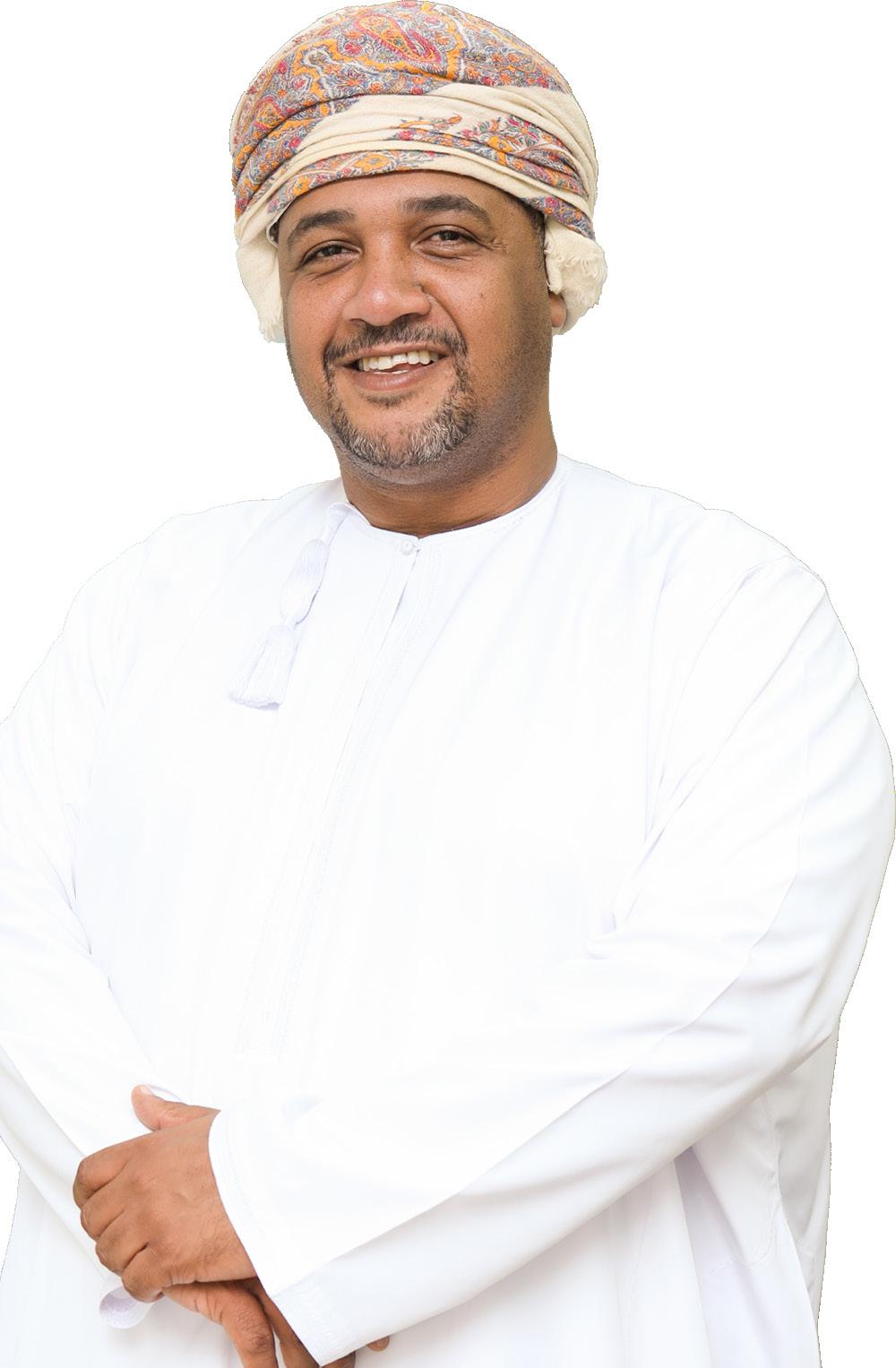
3 minute read
Overriding Objective
Nama Group’s Sustainability Policy focusses on three broad pillars –Social, Environment and Economic covering the entire value chain
Nama Group Sustainability Policy aims to integrate a philosophy of sustainable development into all Group activities and to establish and promote sound sustainable practices. NG Sustainability Policy focuses on the impact of the Group’s electricity and water utilities operations and activities according to social, environmental, and economic objectives.
Advertisement
The Group builds on its very own road map that adheres to government policies and related regulations to establish sustainable practices at work. Annually, the sustainability team develops its customised list of sustainability projects that addresses the Groups’ focus areas, to be approved by the Senior Responsible Owners (SRO). Additionally, the Group allocates 0.5% of its net profit, or a maximum of RO 500,000 (whichever is less) towards the sustainability projects annually. In addition, staff are encouraged to spend at least one working day per year volunteering on charitable activities and sustainability initiatives.
Sustainability Plan
Nama Group aims to ensure that its projects and initiatives have a positive impact on the economy, society, and the environment. The Sustainability Policy of Nama Group ensures to allocate financial and human resources to achieve its goals.
In 2022, Nama Group made a substantial contribution of RO500,000 towards sustainability projects and sponsorships. The Group supported the Environment Authority in the 10 million trees plantation project across the country. It also successfully supported in planting 284,234 trees and establishing 16 Nurseries across Oman. Also, Nama participated in Oman Sustainability
Week (OSW) and was ranked as the best company in the Governance Category and second place in the OSW Award. In addition, Nama Group launched its first “Sustainability and Prosperity” Magazine in the event exhibition, which presents key highlights of the Group latest achievements in sustainability projects.
Further, Nama Group partnered with al Jabr, an Omani boutique consultancy firm, to develop a product for electricity services for residential customers in Oman. This partnership will support Omani technicians of “Naqla” program by providing them with full-time or part-time employment opportunities.
One of the most notable programs implemented by the sustainability team is Nama Sustainability Week in Musandam Governorate, which presented all of Nama Group’s sustainability awareness programs in health and safety and energy conservation. As part of its economic program to support job seekers, Nama offered training for 18 diploma holders under Naqla Program to certify them as electricians.
Priority areas
Due to the inherent nature of utilities services, health and safety remains a main focus area across Nama Group’s value chain. Additionally, it prioritises opportunities and challenges as follows:
1. Limitation of Resources, Renewable Resources and increase in demand for electricity and water services.
2. Rapid changes to the sector due to privatisation and restructuring activities in addition to the advancement of technologies.
Nama Group’s Sustainability Policy Pillars
3. In Country Value to support Omanisation, local products and promote opportunities for local businesses.
Sustainability Policy Objectives
The Group Sustainability Policy implement the triple bottom line approach which focuses on social, environment and economy. Nama Group sustainability programmes focus on projects that directly and indirectly impact areas of priorities.

Social Objective
1. Ensure that all customers have access to safe and reliable electricity and water services throughout the country.
2. Reduce Lost Time Injury Frequency (LT IF) to our staff and contractor to less than 1.
3. Encourage our staff to spend at least one workday per annum on charitable activities and the Group sustainability initiatives.
Environmental Objectives
1. Understand and reduce carbon intensity per MW of electricity and water produced to international standards.
2. Apply International environmental standards related to waste management.
3. Raise awareness about energy and water efficiency by implementing campaigns and forging strategic partnerships.
4. Encourage and support the initiatives related to recycling and waste management.
Economic Objectives
1. Ensure that the group remains profitable and achieves the targeted rates of returns.
2. Ensure fair treatment of all suppliers and service providers through the strict implementation of the government tender law.
3. Train and develop young talent to help them run successful micro and small business.
4. Promote local products to support demand side management.
The Group is committed to enhancing the stakeholder engagement process to enable a better understanding and respond to stakeholder expectations and concerns. As part of the annual sustainability reporting process, stakeholder mapping and assessment is created jointly with staff.
The Group is committed to continuously monitor and assess its sustainability performance in accordance with the GRI Reporting Framework.










